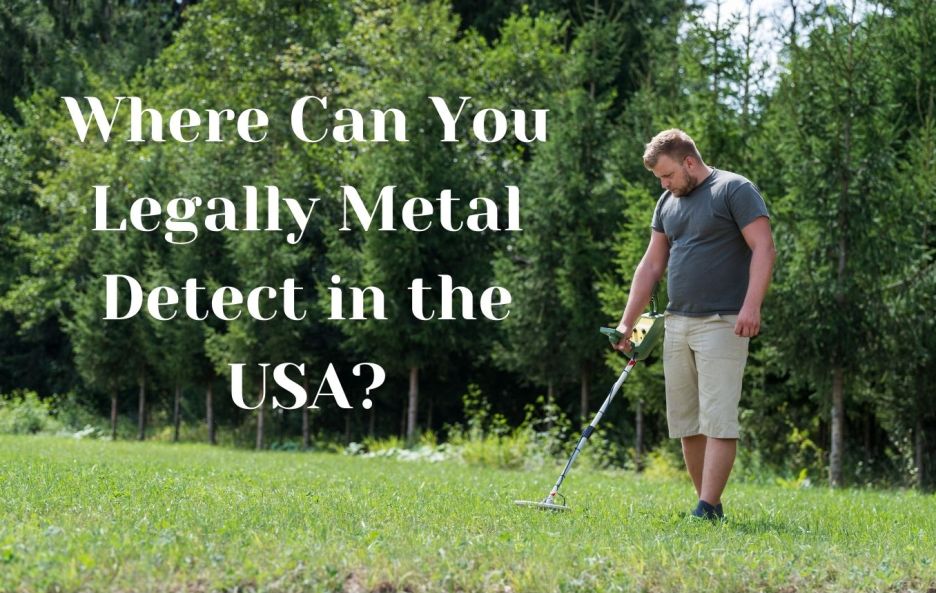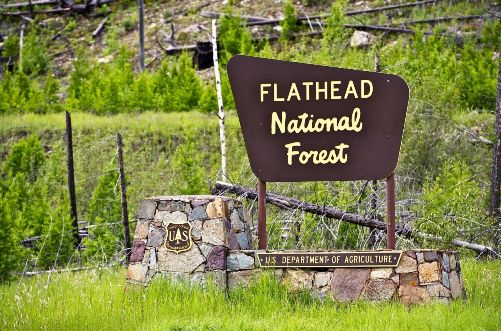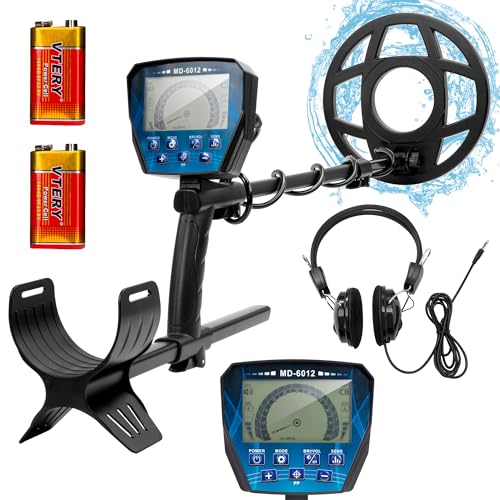
The question is where can you legally metal detect in the United States? Many people don’t realize that there are so many areas across the country where it’s against the law to use a metal detector. If you’re planning on taking your detector on vacation with you or just want to go treasure hunting, this could be an issue.
We’ve compiled some tips and ideas into one easy-to-read guide! This will save you time from having to search through each individual state’s website yourself. It’s also great if you live in one of those states and want to know what you have to do to get that dreaded permission to search. Always check before you detect anywhere as laws and state rules can change regularly.
Where Can You Legally Metal Detect Without Permission?
It is legal to metal detect in state, county, or municipal parks that do not have signs explicitly prohibiting it. The same goes for any other public land like roads and sidewalks. In these areas, you will need to obey all applicable laws which prohibit metal detecting on protected land designated by law as wilderness study area without a permit from the US Forest Service (USFS).
However, if your local jurisdiction does prohibit metal detectors without permission then there are still places where you can search with relative ease. You’ll want to look at sites of abandoned homesteads because they’re usually unprotected and uninhabited so anyone can go exploring there and hunt for treasure!
In general, US national parks and national forests generally allow metal detecting under certain restrictions. For instance, you must have a permit from the US Forest Service to search on protected land designated as wilderness study area and national parks limit searches to “day use only” which means that you can’t camp or stay overnight in these areas if you’re using a metal detector.
In addition, some states prohibit hunting for treasure of any kind while others restrict how deep an individual may dig below ground level (generally no more than two feet) before they need permission from the state’s department of natural resources or mineral extraction commissioner. You’ll just want to check with your local law enforcement office to see what laws are applicable before getting out your detector.
Is it Legal to Metal Detect in National Forests?
If you’re a metal detectorist looking for some free time in nature, you might be wondering whether it’s legal to metal detect in National Forests. The answer is that while there are no explicit regulations against metal detecting on national forests, it is recommended that you make some inquiries first.

While the Forest Service doesn’t have any rules about what can and can’t be done on federal lands, they do prohibit “collecting or possessing minerals.” This means that if you find something valuable like gold or silver coins with your metal detector, technically those items belong to the government.
So you may need special permission from the District Ranger before you can start hunting for treasure on National Forests (and even then may only get permission for specific areas).
Do I Need Permission To Metal Detect On A Beach?
Metal detectorists are often eager to get out and find buried treasure, but do they need permission to metal detect on a beach? The answer is no. In the United States, you have the right to detect on a public beach with your metal detector unless there’s a “No Trespassing” sign posted or if it’s fenced off.
However, in some areas, the beach is privately owned by a homeowner or business owner who has created this land as their exclusive domain with no trespassing allowed. The “no trespassing” signs will let you know for sure if it’s okay to hunt on that stretch of sand.
Is It Legal To Metal Detect In Cemeteries?
Metal detecting in cemeteries is not legal unless permission has been granted by the appropriate authorities. For example, it’s illegal to hunt for treasure at Arlington National Cemetery or Mount Auburn Cemetery without explicit written authorization from a cemetery official. This includes any public land adjacent to these properties such as roads and highways that are under the jurisdiction of the US Government.
Many private cemeteries will also prohibit metal detection on their grounds without prior consent; read your local regulations or carry out an internet search to find out more about this before you get started with hunting for buried treasures near where people have chosen to lay their loved ones to rest. If there’s a “no trespassing” sign posted then they don’t want you coming onto that piece of land.
What Happens If You Find Gold On Public Land?
If you are lucky enough to find gold on public land in the United States of America, then there is a legal process that must be followed before you can claim your prize. You will need to work with an official government agency and provide them with details about what you found as well as information such as where it was buried or how long ago this happened. Staff at these agencies will consult their records and try to hunt down the owner of this treasure trove; if they cannot trace back ownership then it’s yours for the taking!
In some cases, people have been fined by local authorities when metal detecting without having first obtained permission from appropriate officials so make sure you don’t get into trouble while looking for treasure.
Can I Keep The Treasure I Find?
I’m sure you’ve heard the old saying “finders keepers.” This is a common misconception that metal detectorists are unaware of. The truth is, if someone finds something while metal detecting on private property, they don’t technically have the right to keep it. Treasure hunting laws vary from state to state in the US and Canada so it’s important for everyone to be aware of what their rights are before they start looking for treasure!
The law is tricky in that it’s not 100% clear cut. There are different ideas about whether or not you have the right to keep treasure found on private property, but if you can avoid trespassing then your chances of being able to keep what you find will increase dramatically! If there’s a “no trespassing” sign posted then they don’t want people coming onto that piece of land and metal detecting – so make sure to stay off those properties.
Getting Permission To Search a Property
I was looking to get permission on a site that was once a cemetery with many unmarked gravesites just outside of town. When I wanted to metal detect that sort of property, I needed written permission from the cemetery groundskeeper. I didn’t get it!
It’s not always easy to get that request granted as some people are just too protective about their property and won’t share with anyone so don’t take it personally when they say no. It’s important also because there have been many instances of treasure hunters trespassing and getting into trouble for doing what they love most: searching for lost treasures! If you’re going onto someone else’s property without asking first, make sure you have a good reason or at least understand the consequences before proceeding. You might even consider getting permission from the property owner to hunt for artifacts on their land.
The other issue is that in some towns and cities it’s outright illegal to metal detect without written permission, so make sure you know where you’re going before heading out! The law varies by location.
The American Antiquities Act
The American Antiquities Act of 1906 prohibits the excavation or removal of any object from federal lands without a permit issued by the Secretary. The national parks and monuments are federally managed public land, so there is no hunting for buried treasure allowed on them at all unless you have express permission in writing to do so. Possession or use of metal detecting devices is also prohibited under this law with few exceptions (see below).
There’s an exception to these restrictions if your intent is archaeological research as opposed to hunting for treasures: you can apply for permits that allow certain types of metal detection activities during specific time periods within some areas that would otherwise be off-limits. But before using a metal detector anywhere else, make sure it’s legal.
If you want to metal detect on land that is not federally managed, then it will be up to the individual state or local government entity as to whether any restrictions apply for specific locations in their jurisdiction. For example, some states may have a blanket prohibition against metal detecting without written permission from the property owner while others might allow such actions.
Conclusion
The United States is a large country and there are many different metal detecting laws in place to protect the legal rights of landowners. Some states do not allow unlicensed treasure hunting on private property, while others have specific rules about what can be found and how you must handle it.
We encourage all hobbyists interested in this pastime to research their local state’s laws before they start any digs.
Most pieces of land that you search on require permission from the owner or an agent before you dig up anything that may belong to them so make sure you get your permits first!














